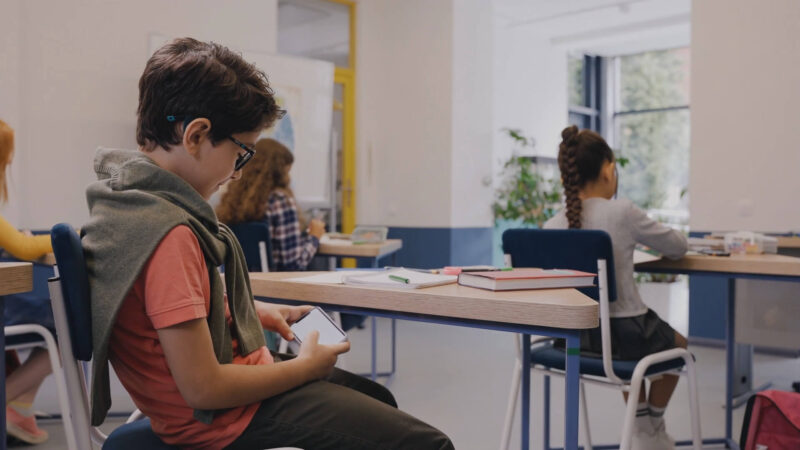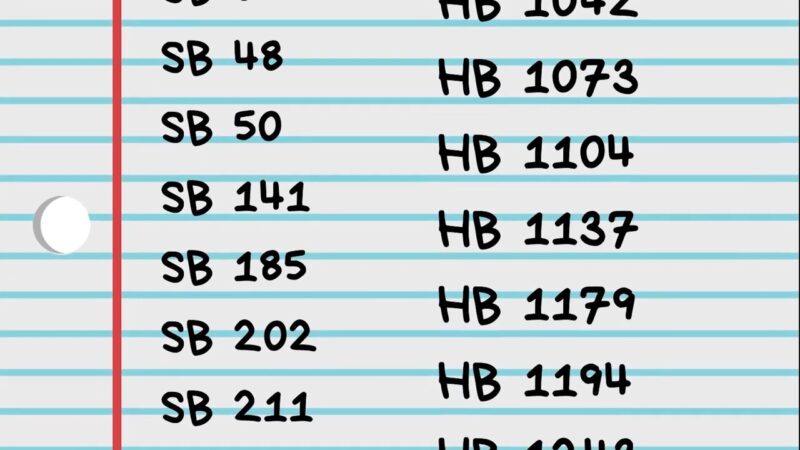Indiana’s lawmakers recently passed several education bills.
Their actions aim to reshape the state’s approach to K-12 education. The changes span from reading proficiency to technology use in classrooms.
Each bill carries potential impacts for students, teachers, and schools across the state.
Now, let’s check what this is all about.
Overview of Legislative Session
Lawmakers in Indiana wrapped up the legislative session quickly. They focused on education, promising significant changes for schools. Governor Eric Holcomb played a key role, with many bills aligning with his 2024 agenda.
Senate Bill 1: Reading Proficiency

Senate Bill 1 targets third graders who fail the IREAD-3 reading assessment.
The bill mandates retention for those students, despite previous intervention efforts. Starting next school year, all second graders must also take the IREAD-3 test. The goal is to ensure early detection of reading difficulties.
Additionally, the bill offers summer school for students at risk of failing the IREAD exam. Certain students, such as English Language Learners, those with disabilities, and previously retained students, may receive exemptions from retention.
Senate Bill 6: Support for Struggling Readers
Senate Bill 6 complements Senate Bill 1 by focusing on students in grades four through eight.
It tasks the Indiana Department of Education with identifying students who did not pass the IREAD-3 assessment and are not reading at grade level.
The department must develop guidance for schools to support these students effectively. The aim is to ensure that students who struggle with reading receive the help they need to improve their skills.
House Bill 1001: Career Scholarship Account Expansion

House Bill 1001 expands the Career Scholarship Account program.
It now allows students to use funds for driver’s license training and certain transportation costs.
The bill builds on previous work-based learning legislation. It aims to support students in gaining practical skills and access to education and training opportunities.
Additionally, the bill includes a provision that expands the Education Scholarship Account program to siblings of students with disabilities, sparking debate over its implications for funding and support.
House Bill 1002: Antisemitism Definition
House Bill 1002 sets a definition for antisemitism in public education institutions. It adopts the International Holocaust Remembrance Alliance’s definition. The bill, however, does not include the Alliance’s examples of antisemitism.
This decision aims to prevent restrictions on free speech in schools and colleges. The bill represents a compromise, addressing concerns while striving to combat antisemitism.
It is a way of expanding the existing Convention against discrimination in education.
Senate Bill 282: Truancy Reduction
Senate Bill 282 addresses the issue of truancy, or unexcused absences, in schools.
Schools must hold meetings with parents if an elementary student misses five days without an excuse. The bill focuses on reducing truancy rates by engaging families early in the process.
It does not cover middle and high school students or chronic absenteeism due to excused absences. The goal is to improve attendance and, by extension, student performance.
House Bill 1137: Religious Instruction

House Bill 1137 requires public schools to allow students to leave campus for religious instruction.
Students can attend these sessions for up to two hours each week. Participation requires parental permission.
The instruction must occur off school property. This bill ensures students can receive faith-based education during the school day.
Senate Bill 185: Cellphone Restrictions

Senate Bill 185 mandates school districts and charter schools to create policies that prohibit cellphones during instructional time.
Exceptions exist for educational purposes, as part of a student’s Individualized Education Plan, or in emergencies.
The bill aims to minimize distractions.

